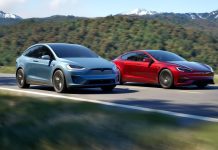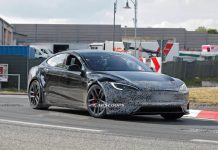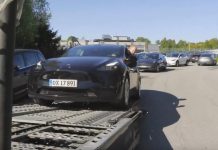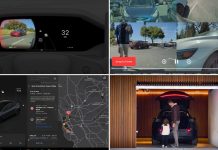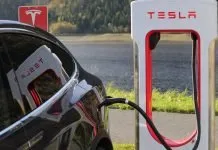In the world of automotive innovation, there are pioneers, and then, there’s Tesla, the audacious trailblazer that turned the electrified car industry from a snooze fest into a red-hot, jaw-dropping spectacle.
While other companies stumbled and fumbled in their attempts to create an electric car that would capture hearts and minds, Tesla waltzed in like a suave superhero rolling out one masterpiece EV after the another.
Even a slime maker needs advertising on Instagram to show off its latest creation and glittery mixes. But the biggest giant in the EV industry earns millions without having to spend a penny. The biggest concern of any business startup is making time and money for its marketing or popularity in place. But, Elon Musk had a different strategy in his mind right from the start.
Tesla, the renowned electric vehicle (EV) manufacturer, has achieved remarkable success in the industry, with its Tesla Model 3 becoming the best-selling EV worldwide for two consecutive years.
Tesla managed to flip the switch on electric vehicles, turning heads, and revving up desires like a high-voltage enchantress. They didn’t just change the game; they electrified it, leaving competitors in a cloud of smoke and a chorus of “Why didn’t we think of that?” echoing through automobile history.
What sets Tesla apart is not just its impressive sales figures, but the fact that it has accomplished this without relying on traditional advertising or marketing tactics. But what’s the magic behind it all?
Let’s find out more about it.
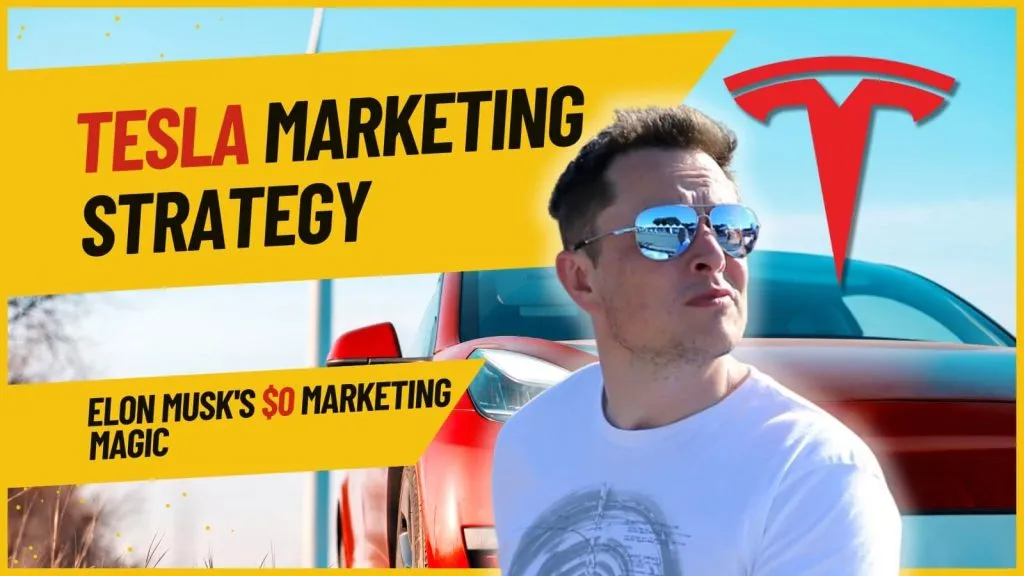
Tesla’s Success In EV Industry
When Tesla burst onto the automotive scene, its inaugural car, the Tesla Roadster, utilized the sleek and already captivating Lotus Elise as its base. This strategic move allowed Tesla to leverage the appeal of the Lotus while incorporating their electric powertrain technology.
The Roadster offered two battery options: A 185kWh or a 215kWh, delivering impressive horsepower outputs of 248 and 288, respectively. With the Roadster’s handling inherited from the Lotus and the instant torque provided by the electric powertrain, Tesla secured its survival in the market.
The first-generation Roadster, available between 2008 and 2012, marked an important milestone in Tesla’s journey. Giving it the kick-start needed to make its mark in the automobile industry.
Following the triumph of their initial offering, Tesla set its sights on the Model S. With the introduction of the infamous “ludicrous mode,” Tesla found a way to captivate not only the masses but also automotive enthusiasts.
While many die-hard gearheads may cling to their V8 engines on principle, Tesla managed to entice them with the sheer exhilaration and speed offered by their electric vehicles. Managing to go 0-60mph in mere 2 seconds is no ordinary feat.
The Model S came in challenging the notion that electric cars couldn’t match the thrills of traditional gasoline-powered counterparts.
Guided by the visionary leadership of Elon Musk, Tesla made its initial foray into the market with the introduction of the sporty Roadster. However, the focus shifted when Tesla unveiled the Model S sedan in June 2012, leading to the discontinuation of the Roadster production. Tesla further expanded its product lineup by delivering its first-ever SUV, the Model X, in September 2015.
This marked another significant milestone for the company as it ventured into the realm of electric luxury SUVs. Subsequently, in July 2017, Tesla initiated the first deliveries of its highly anticipated Model 3, positioning itself in the market for affordable electric vehicles. Model 3 soon became the most famous EV with many waiting for several months for its delivery.
With a base model starting at $36,200 in 2020, the Model 3 brought Tesla’s cutting-edge technology and sustainability to a broader consumer base, accelerating the transition to electric mobility on a global scale.
Key Elements Of Tesla’s Marketing Strategy
In a world dominated by flashy TV commercials and paid ads, Tesla has charted its own course, eschewing a dedicated marketing department and CEO Elon Musk’s ever-present tweets.
This unconventional approach begs the question:
How does Tesla manage to thrive without any traditional marketing?
The answer lies in the brilliance of Tesla’s marketing strategy, which we will explore in this blog post. By understanding and applying the principles behind Tesla’s success, businesses can unlock valuable insights to fuel their own growth.
On the surface, Elon Musk’s aversion to advertising practices and his refusal to pay for it might seem like a risky move in the business world.
After all, advertising is often seen as an essential tool for reaching customers and generating sales. However, Tesla has managed to succeed without paid ads by leveraging some secret weapons that have propelled them forward. These weapons include the unparalleled charisma and influence of Elon Musk himself, who has cultivated a strong personal brand that resonates with Tesla’s target audience.
Musk’s visionary leadership and active presence on social media have created a sense of authenticity and transparency, fostering a deep connection with its customers. Here’s how Tesla is effortlessly sailing through:
Lack Of Traditional Marketing
The human desire for social status plays a significant role in our daily lives, influencing our thoughts and actions. When individuals wake up in the morning, it’s not uncommon for them to contemplate their status and how they compare to their peers.
Tesla, recognizing the power of status as a motivator, has expertly tapped into this aspect of human psychology. By positioning its electric vehicles as symbols of higher social status, Tesla has created a sense of craving and desire among consumers. The allure of owning a Tesla goes beyond the practical benefits of electric mobility; it represents a statement of prestige and sophistication.
The sleek design, cutting-edge technology, and association with innovation all contribute to the attractiveness of Tesla’s vehicles. By leveraging the intrinsic human desire for status,
Tesla has successfully created a brand that appeals to those seeking to elevate their social standing, further fueling the demand for their appealing electric vehicles. Cybertruck is yet to roll out but the fan-following and pre-bookings say much about its stardom.
No PR & Marketing Department
While Tesla is a company with several billions of turnover, no PR and marketing department makes it the only one of its kind.
One of the most intriguing aspects of Tesla’s marketing strategy is its notable absence of a dedicated PR and marketing department. Unlike traditional automakers, Tesla operates without a team solely focused on public relations and marketing activities.
This unconventional approach may seem puzzling at first, but it aligns with Tesla’s philosophy of channeling resources directly into product development and customer experience. Instead of relying on traditional advertising campaigns or paid media, Tesla capitalizes on its strong brand reputation, innovative technology, and word-of-mouth promotion.
The company leverages the power of social media, especially Elon Musk’s active presence on platforms like Twitter, to engage directly with customers, share updates, and address inquiries. This strategy not only saves Tesla significant marketing costs but also fosters a sense of authenticity and community around the brand.
The absence of a PR and marketing department demonstrates Tesla’s confidence in its products and its ability to organically generate buzz, resulting in a highly effective and unconventional marketing approach.
Unlike traditional automakers, Tesla operates its own sales centers instead of relying on franchise dealerships, which allows for a more direct and personalized customer experience. This integrated approach to sales and customer service contributes to Tesla’s overall digital marketing strategy, ensuring that customers have a seamless and positive interaction with the brand throughout their journey.
Tesla Cars Tops The Electric Vehicle First Quarter Sales Report
Product Quality And Innovation
Driving a car is not merely a practical act but also an emotional experience. Recognizing this, Tesla, as a young company, has made a strategic decision to prioritize the development of exceptional products over conventional advertising. Every dollar is allocated towards making the best possible car, understanding that delivering an outstanding experience to potential owners is paramount.
Tesla has successfully transformed electric vehicles from mere eco-friendly alternatives to coveted status symbols. While other car brands also recognize the importance of a great product, Tesla took a unique approach.
With the launch of the Roadster, Tesla introduced an electric vehicle that was not only innovative but also stylish. Similar to the impact of the iPhone, the combination of sleek design and impressive performance sparked excitement among consumers.
This trend continued with the recent unveiling of the Cybertruck, a vehicle that stands out with its unconventional appearance while still exuding a sense of coolness.
In contrast to the uninspiring image of early electric cars like the Prius, Tesla managed to create electric vehicles that resonate with consumers on both an aesthetic and aspirational level, turning electric mobility into a desirable status symbol.
Elon Musk’s Personal Brand
Elon Musk has built a personal brand that is as powerful and influential as the companies he leads. With his charismatic and visionary persona, Musk has become a symbol of innovation, entrepreneurship, and audacious ambition. He is known for his bold ideas, such as electric vehicles, space exploration, and renewable energy solutions, which have earned him a reputation as a forward-thinking and boundary-pushing leader.
When discussing the phenomenon surrounding Tesla and its devoted following, it is impossible to overlook the addictive charisma of its enigmatic leader, Elon Musk. Known as the EV leader, Musk possesses an official title as distinctive as his persona.
With a staggering Twitter following surpassing 144 million people, Musk has cultivated a larger-than-life image. His aspirations to colonize Mars, high-profile relationships, immense wealth, and eccentric hobbies like flamethrower construction and public feuds with Jeff Bezos all contribute to his charismatic allure.
In essence, Musk embodies charisma, and people are inherently drawn to it. But what lies behind his charisma? What exactly is it, and why do we find ourselves so captivated by it? These questions delve into the fascinating realm of human psychology, exploring the innate human fascination with charismatic figures and the influence they hold over our emotions and desires.
Publicity Stunts And Events
Tesla employs a unique and effective digital marketing strategy, with CEO Elon Musk playing a central role in increasing the company’s visibility with publicity stunts and events. Musk’s active presence on social media platforms, coupled with his charismatic and idealistic personality, has attracted a significant following.
Musk often engages in online discussions, participates in minor conflicts, and shares updates and announcements, effectively utilizing his social media channels as a platform for Tesla’s marketing.
Musk’s ability to generate buzz and draw attention to the brand is exemplified by events like the infamous cyber truck window glass test, which unintentionally created widespread buzz and served as a form of marketing for the vehicle.
Capitalizing On Musk’s Influence And Vision
A significant aspect contributing to Tesla’s popularity lies in the reputation of its CEO, Elon Musk. He shares a commonality with the early adopters of Tesla vehicles: they are educated, affluent individuals in the tech industry. These individuals sought more than just a car; they desired a vehicle that reflected their personal identity and made a statement about who they were.
Their interest in Tesla stemmed not necessarily from a deep concern for the environment, but rather a desire to appear cool and be admired for their intelligence, all while driving a futuristic and cutting-edge automobile that resembled a spaceship on the road.
This strategic approach by Tesla differed from many other electric car manufacturers of the time, such as the Toyota Prius and Honda Insight, which prioritized practicality and fuel efficiency over aesthetics and sex appeal.
Elon Musk understood that by creating a compelling vision and fostering a sense of community around Tesla, he could attract the Muskateers and tech-savvy individuals, enticing them to become an integral part of the Tesla experience.
Creating Buzz And Media Attention Without Paid Advertising
One of the most remarkable aspects of Tesla’s marketing strategy is its ability to generate buzz and media attention without relying on traditional paid advertising. Tesla has effectively harnessed the power of organic publicity and word-of-mouth marketing.
The company’s innovative products, groundbreaking technology, and the charismatic presence of Elon Musk have captured the imagination of the public and media alike.
Every move Tesla makes, from product launches to technological advancements, generates extensive media coverage and social media conversations. By leveraging the curiosity and enthusiasm of its passionate fan base, Tesla has created a self-perpetuating cycle of buzz and media attention.
This approach not only saves the company significant advertising costs but also lends an air of authenticity and desirability to the brand.
Musk’s personal brand is characterized by his relentless drive, unapologetic attitude, and willingness to challenge the status quo. He leverages his personal brand to engage with his followers on social media, using platforms like Twitter to share updates, engage in discussions, and even make unexpected announcements.
This direct and transparent communication style has further fueled the fascination and loyalty of his followers, who view him not just as a successful CEO but as a cultural icon. Elon Musk’s personal brand represents a fusion of innovation, charisma, and fearless pursuit of the extraordinary, making him a figurehead of inspiration for entrepreneurs, technologists, and dreamers worldwide.
The Elon Musk Effect
Elon Musk, the CEO of Tesla, has emerged as a modern-day folk hero, capturing the imagination of people worldwide, much like Steve Jobs did in his time. Affectionately dubbed “The Musketeers,” his devoted followers have played a crucial role in catapulting Tesla into the spotlight from its inception.
These loyal supporters have embraced the media narrative surrounding Musk’s life and his grand vision for Tesla, elevating him to the status of a charismatic and enigmatic figure. In this narrative, Musk is portrayed as a self-made man, embodying a unique blend of engineering prowess, visionary leadership, and a penchant for pushing the boundaries of innovation.
Notably, Musk’s persona extends beyond the realms of business and technology, as he has also gained recognition as a master of memes, engaging with audiences through humor and internet culture.
Interestingly, it is worth mentioning that while Musk is widely regarded as a co-founder of Tesla due to his involvement in early funding rounds, but is the fourth CEO of the company.
Will Tesla Ever Pay For Marketing?
It’s extremely hard to see if Tesla would ever make the three-point turn in real. Why? Because Elon Musk is eccentric enough to pull something like this out of the blue or outright deny it.
However, in a significant departure from its longstanding approach, Tesla Inc. CEO Elon Musk recently announced that the electric-car manufacturer will venture into advertising last month.
Musk made this revelation during Tesla’s annual shareholder meeting in response to a question from an investor. Historically, Tesla has relied heavily on word-of-mouth marketing from its dedicated fan base, eschewing traditional advertising channels such as television, radio, and print media.
The company has prided itself on building a formidable brand without the need for paid advertising. However, Musk’s willingness to explore advertising suggests a potential shift in Tesla’s marketing strategy as it seeks to expand its reach and appeal to a broader audience. This move will undoubtedly be closely watched by industry observers as Tesla tests the waters of paid advertising for the first time in its two-decade history.
What To Expect In The Future?
Tesla’s dominance in the automotive industry extends far beyond its innovative electric vehicles and groundbreaking technology. No other carmaker can come close to matching Tesla’s outstanding performance, as evidenced by its record-breaking revenue figures year after year since it started reporting financial results in 2007.
This unparalleled success is further reflected in Tesla’s staggering stock market value, which stood at a remarkable $819 billion as of Friday, June 23, 2023. To put this into perspective, Tesla’s market value surpasses the combined worth of industry giants such as Toyota, Mercedes-Benz Group AG, Volkswagen, BMW, General Motors, Stellantis NV, and Ford.
This extraordinary achievement underscores Tesla’s position as a trailblazer in the automotive realm, solidifying its status as a force to be reckoned with in the industry.
Contrary to initial concerns about Elon Musk’s active presence on Twitter and its potential impact on Tesla, the outcomes have defied expectations.
In fact, Tesla has flourished, converting every $100 of revenue into an astounding $26 of profit after factoring in production costs. This remarkable achievement has resulted in the widest gross margin for Tesla since the company began selling over 50,000 cars annually in 2015.
Tesla boasts the highest profit margin among the top 10 largest automakers, providing a substantial competitive advantage. This advantage enables Tesla to allocate more resources toward enhancing its existing vehicle lineup and spearheading the development of new products.
Data compiled by Bloomberg corroborates these findings, underscoring the immense profitability and financial strength that Tesla enjoys compared to its industry peers.
No matter if Tesla chooses to invest in PR or some marketing stints in the future, these impressive financial metrics not only solidify Tesla’s position as an industry leader but also reaffirm its ability to excel in business.
Bottomline
By focusing on creating exceptional vehicles that elicit excitement and offer unparalleled driving experiences, Tesla generates immense value for its customers. The company understands that once a potential owner is captivated and immersed in the remarkable features and performance of a Tesla car, the sale becomes a natural outcome.
Elon Musk himself has emphasized the significance of great products as the foundation for building exceptional companies.
Tesla’s remarkable journey in the automotive industry is an example of the power of innovation, disruption, and bold thinking. By challenging conventional norms and pushing the boundaries of what’s possible, Tesla has not only revolutionized electric cars but also redefined the concept of automotive excellence. It would be amazing to see how the PR thing pans out for Tesla but also how Elon Musk takes the company forward in the coming times.

